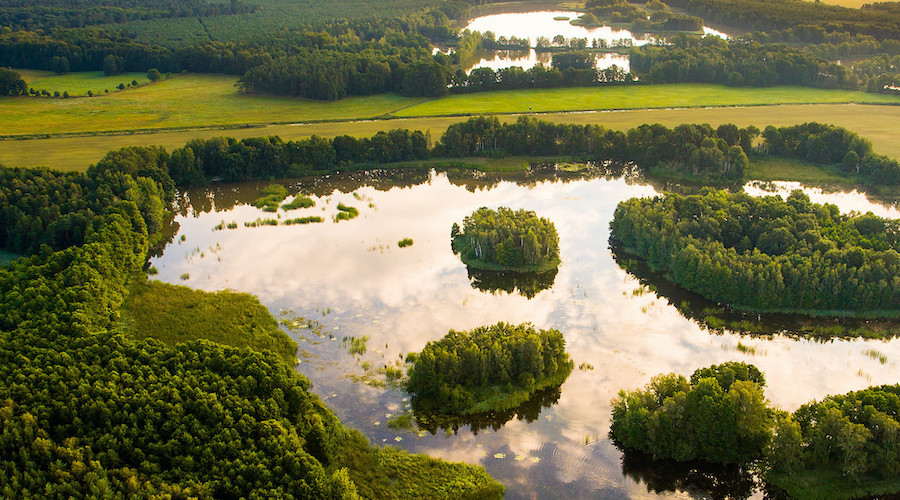
“Under oxygen-free conditions, pyrite should ideally be re-formed in water-saturated peatland soils and iron and sulphur should be removed at the same time, eventually preventing renewed pyrite oxidation,” Lydia Roesel, first author of the study that explains the new findings, said in a media statement. “Compared to other organic substrates, however, it was previously unclear to what extent the decomposed peat from the upper soil layers of drained peatlands is suitable.”
Roesel pointed out that in the lab experiment she and her team conducted, a simulation of the rewetting of peatland with acid mine water was performed. Then, the group quantified the iron and sulphate removal and the pH changes at different loading rates.
The initial low pH of 4 increased to 6, and the electrical conductivity dropped by up to 47%. The conductivity of the water is a measure of the particles dissolved in the water and thus, in freshwater, also an indicator of the quality of the water.
The initially high concentrations of iron (more than 250 milligrams per litre) and sulphate (more than 770 milligrams per litre) fell on average by 87 and 78% respectively.
“The results imply that microbial degradation of sulphate and subsequent precipitation of iron sulphides was the most important mechanism in reducing pollution,” Dominik Zak, co-author of the study, said. “The lower the hydraulic or material load, the more sulphate was removed. The hydraulic load determines the retention time and the higher it is, the shorter the contact time of the mine water with the peat substrate.”
The expert pointed out that for the heavily polluted section of the Spree river they studied, they were able to estimate, on the basis of the rewetting experiment and extensive field data, that a reduction in the river’s sulphate load of about 20% (36,827 tons per year) would occur if all the peatlands in the sub-catchment were rewetted. This would be 6067 hectares and would correspond to 6.7% of the total area.
“Our results show once again that the rewetting of peatlands is an important measure for the protection of our environment. Peatlands stabilize the global carbon balance, they keep water in the landscape and also have an important purification function,” Roesel said.
Despite the promising results of their work, the researchers emphasize that laboratory experiments cannot be easily transferred to large-scale field conditions.
“In the future, it needs to be investigated whether pollutant degradation in decomposed peat layers decreases over time due to acidification or the lack of bioavailable carbon—or both—and how rewetting with acid mine drainage affects the restoration of the important further functions of peatlands in the long term,” Zak said.




